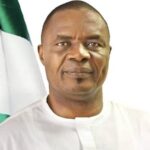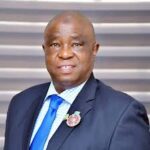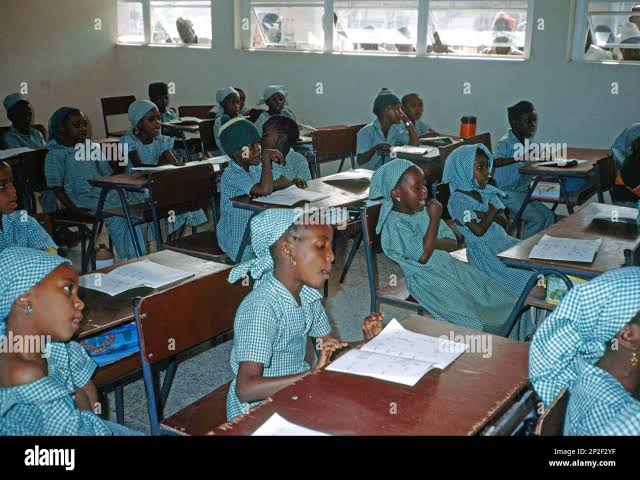By Charity Ishaya
Education in northern Nigeria faces significant challenges that hinder its development and limit opportunities for the region’s youth.
Despite the efforts of the Nigerian government and various international organizations, northern Nigeria continues to struggle with low literacy rates, especially among girls, inadequate infrastructure, and limited access to quality education.
The region’s educational system remains underfunded, and the socio-cultural dynamics further exacerbate barriers to education, leaving many children without the skills they need to build a better future.
One of the most pressing barriers to education in northern Nigeria is the deep-rooted cultural and religious norms that prioritize early marriage and traditional gender roles over formal schooling, especially for girls.
In many parts of the north, girls are expected to marry at a young age, limiting their opportunities to attend school or complete their education.
This practice not only deprives young girls of their right to education but also perpetuates the cycle of poverty, as women without education are less likely to enter the workforce and contribute to the economic development of their communities.
The patriarchal nature of some communities often results in a lack of support for female education, as families may choose to invest in the education of their male children while neglecting their daughters.
In addition to gender inequality, the poor state of educational infrastructure in northern Nigeria further exacerbates the education crisis.
Many schools in rural areas are dilapidated, overcrowded, and lack basic facilities such as toilets, clean water, and adequate classrooms.
Teachers are often underqualified, and there is a significant shortage of educational materials, making it difficult for students to learn effectively.
The lack of well-trained teachers and appropriate teaching resources reduces the quality of education and makes it difficult for children to acquire the necessary skills to succeed in the modern workforce.
In many remote areas, the absence of schools altogether forces children to travel long distances to the nearest educational facility, further discouraging enrollment and attendance.
The insecurity in northern Nigeria, particularly due to the insurgency of Boko Haram and other militant groups, has also had a devastating impact on education.
Schools have been attacked, destroyed, or forced to close as a result of the violence, leaving children without access to education. In some areas, parents are reluctant to send their children to school due to the threat of abduction or attacks on schools.
This has led to a significant increase in the number of out-of-school children in northern Nigeria, with millions of children unable to access education.
The displacement caused by the ongoing conflict has further disrupted education, as many families are forced to live in internally displaced persons (IDP) camps where educational facilities are either nonexistent or grossly inadequate.
In addition to security concerns, poverty remains a major obstacle to education in northern Nigeria. Many families struggle to afford the cost of schooling, including fees, uniforms, and transportation.
Children from low-income families are often forced to work to help support their households rather than attend school.
This is especially true in rural areas where agricultural work is a primary source of income.
Poverty disproportionately affects girls, who are more likely to be kept at home to help with household chores or married off at an early age.
Without financial support, many children are unable to pursue their education and are left without the opportunity to break the cycle of poverty.
The high dropout rates in northern Nigeria are also indicative of the challenges faced by students in completing their education.
Many children begin school but drop out before completing basic education due to various reasons, including poverty, early marriage, and the lack of support for their education.
This has contributed to a significant number of unskilled and uneducated youth, who are at a higher risk of falling into poverty or being recruited by extremist groups.
Without education, young people are left without the tools to escape poverty and contribute to the development of their communities.
Addressing the education crisis in northern Nigeria requires a multifaceted approach that tackles both the cultural and infrastructural barriers to education.
First, there needs to be a concerted effort to promote the value of education for both boys and girls.
This can be achieved through awareness campaigns that highlight the importance of education for economic development, gender equality, and social progress.
Additionally, community leaders, religious figures, and parents must be involved in advocating for the education of girls and challenging harmful practices such as early marriage.
Secondly, the government and development partners must invest heavily in educational infrastructure, particularly in rural and conflict-affected areas.
Schools need to be built, renovated, and equipped with the necessary resources, including textbooks, chairs, and sanitation facilities. Teachers must receive proper training and support to ensure that they can deliver quality education to students.
The provision of scholarships and financial assistance for low-income families can also help alleviate the financial burden of schooling and ensure that children from disadvantaged backgrounds can attend school without barriers.
Moreover, addressing the security situation in northern Nigeria is crucial for ensuring that children can attend school safely.
The Nigerian government, in collaboration with international partners, must take decisive steps to combat insurgency and militant activities in the region, while also ensuring the safety of schools and students.
Creating safe spaces for learning, both in conflict zones and IDP camps, will allow displaced children to access education and help rebuild communities devastated by violence.
Lastly, addressing poverty through social protection programs and community-based initiatives can help ensure that families are able to send their children to school without the burden of financial constraints.
By creating economic opportunities and improving access to basic services such as healthcare and housing, families will be better equipped to prioritize education for their children.
Education is a fundamental human right, and ensuring that all children in northern Nigeria have access to quality education is critical for breaking the cycle of poverty and promoting sustainable development.
By addressing the cultural, infrastructural, and security challenges, Nigeria can build a more educated and resilient generation capable of contributing to the country’s future.
Charity Ishaya is a 300 level student from Mass Communication Department Borno State University, Borno State.











